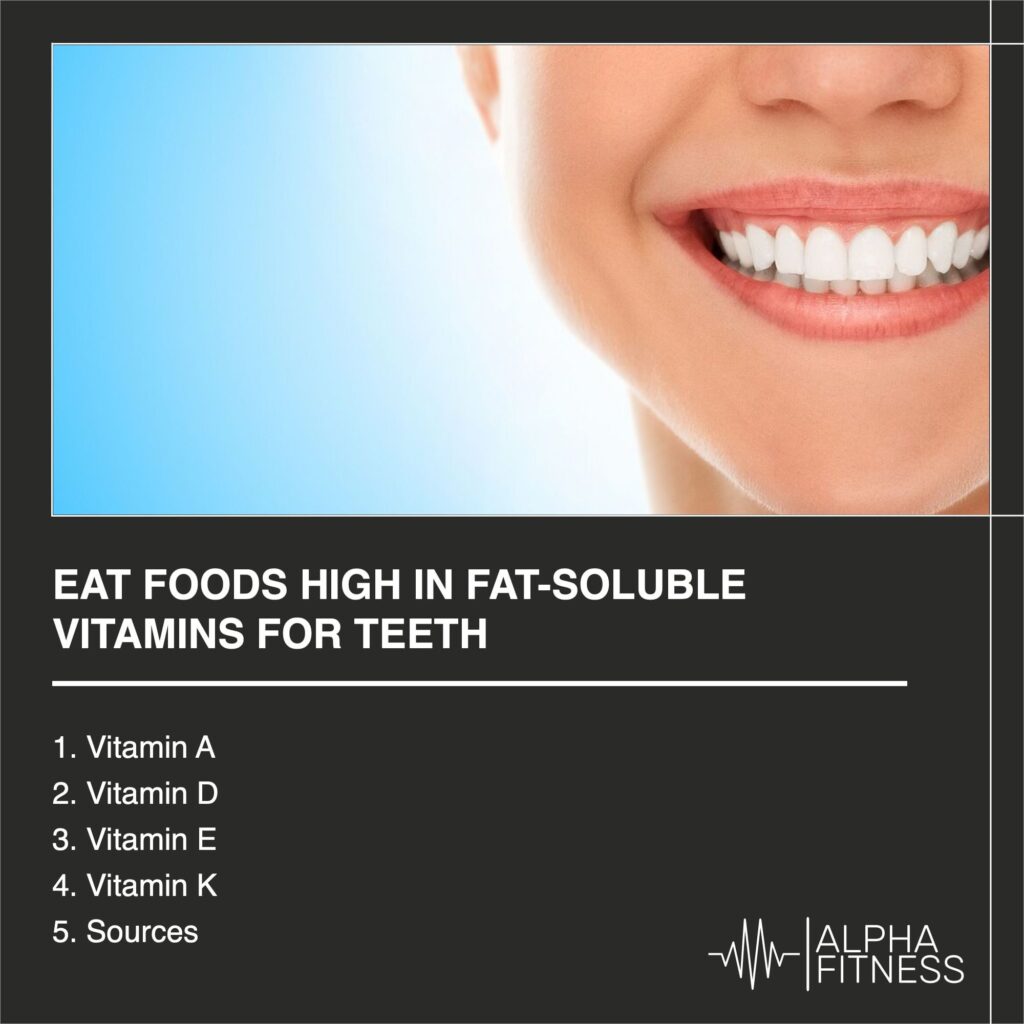
Below is a list of useful links:
- Giloy is useful in managing dengue fever
- Eat foods high in fat-soluble vitamins for teeth
- Planks help stabilize back muscles
- Kapalbhati leads to increased stamina
Eating foods rich in fat-soluble vitamins can be beneficial for dental health, as these vitamins play important roles in maintaining the health of teeth and gums. The fat-soluble vitamins include vitamins A, D, E, and K. Here’s how each of these vitamins contributes to oral health:
Vitamin A: Vitamin A is essential for the development and maintenance of healthy teeth and gums. It helps in the formation and maintenance of tooth enamel, the protective outer layer of teeth. Additionally, vitamin A supports the health of mucous membranes in the mouth and contributes to saliva production, which aids in the prevention of dry mouth and tooth decay. Foods rich in vitamin A include sweet potatoes, carrots, spinach, kale, and liver.
Vitamin D: Vitamin D is crucial for the absorption of calcium and phosphate, which are necessary for the formation and remineralization of tooth enamel. It also helps regulate the immune response in the gums, potentially reducing inflammation and the risk of gum disease. The primary source of vitamin D for most people is exposure to sunlight, but it can also be found in foods like fatty fish (e.g., salmon, mackerel), egg yolks, and fortified dairy products.
Vitamin E: While vitamin E is not directly related to tooth enamel, it is an antioxidant that can help protect gum tissue from inflammation and damage caused by free radicals. Nuts (such as almonds and hazelnuts), seeds, vegetable oils, and leafy greens are good sources of vitamin E.
Vitamin K: Vitamin K plays a role in bone metabolism and can contribute to overall oral health by supporting healthy bone density in the jawbone, which holds the teeth in place. Leafy green vegetables (e.g., kale, spinach), broccoli, Brussels sprouts, and other cruciferous vegetables are good sources of vitamin K.
Sources: Foods rich in vitamin A include sweet potatoes, carrots, spinach, kale, collard greens, butternut squash, and liver. These foods provide beta-carotene, which the body can convert into vitamin A.
Vitamin D can be synthesized by the body when the skin is exposed to sunlight. Dietary sources of vitamin D include fatty fish (salmon, mackerel, sardines), cod liver oil, egg yolks, and fortified foods like milk and cereal.
Vitamin E is found in foods like nuts (almonds, hazelnuts), seeds (sunflower seeds), vegetable oils (sunflower oil, wheat germ oil), and leafy greens (spinach, Swiss chard).
Leafy green vegetables (kale, spinach, collard greens), broccoli, Brussels sprouts, and other cruciferous vegetables are excellent sources of vitamin K.
Incorporating a variety of these foods into your diet can help ensure you get the necessary fat-soluble vitamins for dental health. However, it’s important to maintain a well-rounded diet that includes all essential vitamins and minerals, as they work together to support overall oral health. Additionally, practicing good oral hygiene, such as regular brushing and flossing, along with routine dental check-ups, is crucial for preventing dental issues like cavities and gum disease.
If you have specific concerns about your dental health or dietary requirements, consider consulting with a dentist or a registered dietitian. They can provide personalized recommendations to address your unique needs and help you maintain a healthy smile.




Your article helped me a lot, is there any more related content? Thanks!